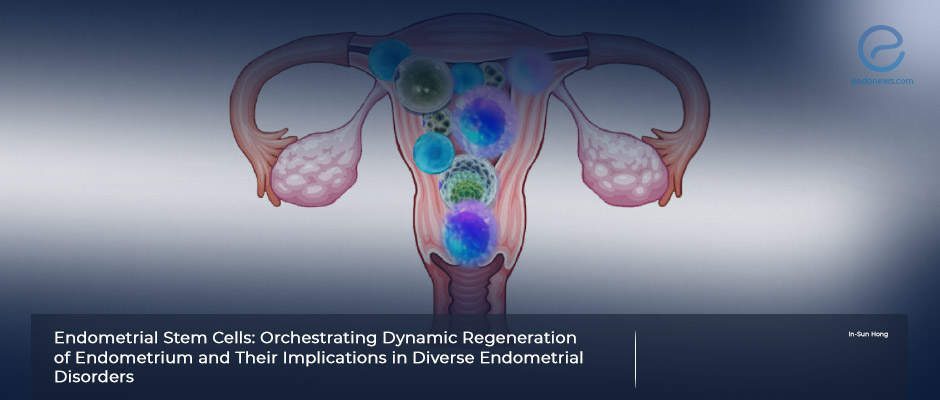Stem cells may open new horizons in various gynecological disorders
Apr 25, 2024
Endometriosis pathogenesis also could be linked to stem cells
Key Points
Highlights:
- The extraordinary regenerative capacity of endometrium depends on a group of cells capable of differentiating into different cellular components.
- This regenerative endometrial milieu, i.e. stem cells, is responsive to various hormonal stimuli.
Importance:
- The clarification of the endometrial stem cell regulation mechanisms would change and illuminate our view on female reproductive health, especially for potential therapeutic frontiers.
What's done here:
- This comprehensive review provides contemporary knowledge on how the dysregulation of endometrial stem cells could affect various endometrial pathologies including endometriosis.
Main key feature :
- Endometrial stem cells may surpass bone marrow and fat-derived stem cells in their capacities, which further necessitates the need for sophisticated research protocols to reveal the potential implications of these cells in regenerative medicine.
Lay Summary
In-Sun Hong, PhD, a researcher in regenerative medicine at Korean Gachon University has published a comprehensive review on the role of stem cells in gynecological disorders in a recent issue of the International Journal of Biological Sciences.
Endometrium changes the menstrual cycle and the extraordinary regenerative capacity depends on tissue-resident stem cells within the uterine mucosa. Despite variations in specific characteristics among endometrial stem cells, the common denominator is strong self-renewal capacity and the ability to differentiate into multiple cell types.
The author has comprehensively reviewed published papers and recent advancements to yield a concise overview of how the dysregulation of endometrial stem cells could take contributory roles in various endometrial disorders.
There is ample evidence that dysfunction and/or depletion of endometrial stem cells could have critical roles in the pathogenesis and progression of various endometrial pathologies like endometriosis, uterine myomas, adenomyosis, infertility, and endometrial malignancy.
Endometrial stem cells could play an important role in endometriosis since it has been shown that endometrial stem cells are capable of differentiating into endometrial-like cells in extra-uterine environments. CD9, CD10, and CD29 are expressed vividly with increased proliferative and migratory features in endometrial stem cells from patients with endometriosis compared to those from women without endometriosis.
It is now accepted that uterine stem cells could surpass bone marrow and fatty tissue stem cells in their capacities, however, these properties may be dependent on factors like the donor's condition, culture milieu, and in vitro passages. The author concludes that there is a need for more detailed research to reveal the potential implications of these cells in regenerative medicine.
Research Source: https://pubmed.ncbi.nlm.nih.gov/38250149/
stem cells endometrium endometriosis regenerative medicine

